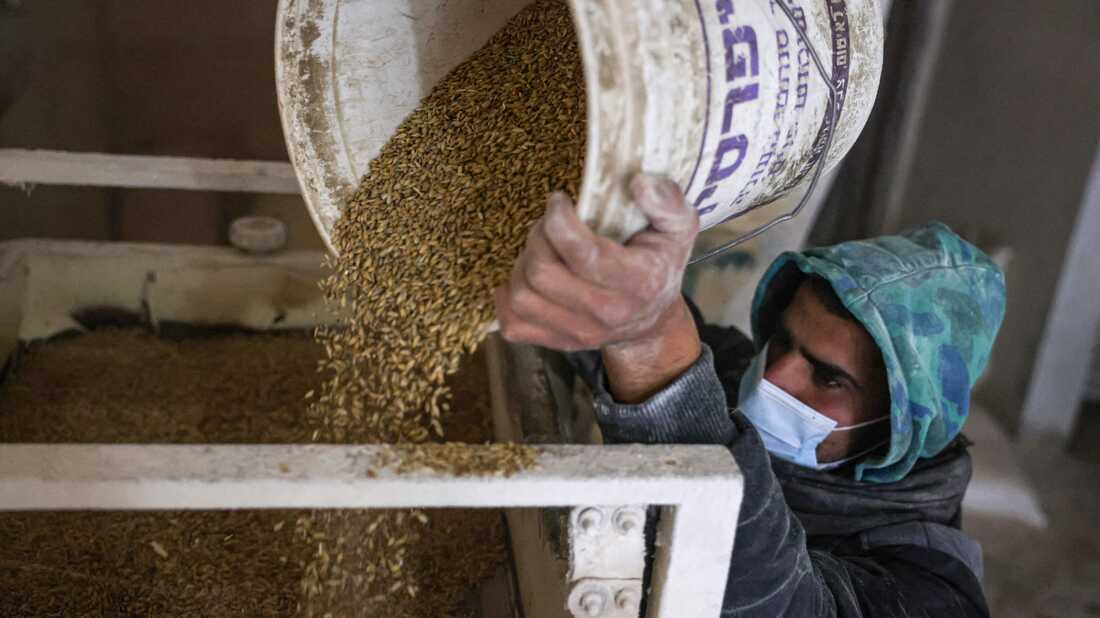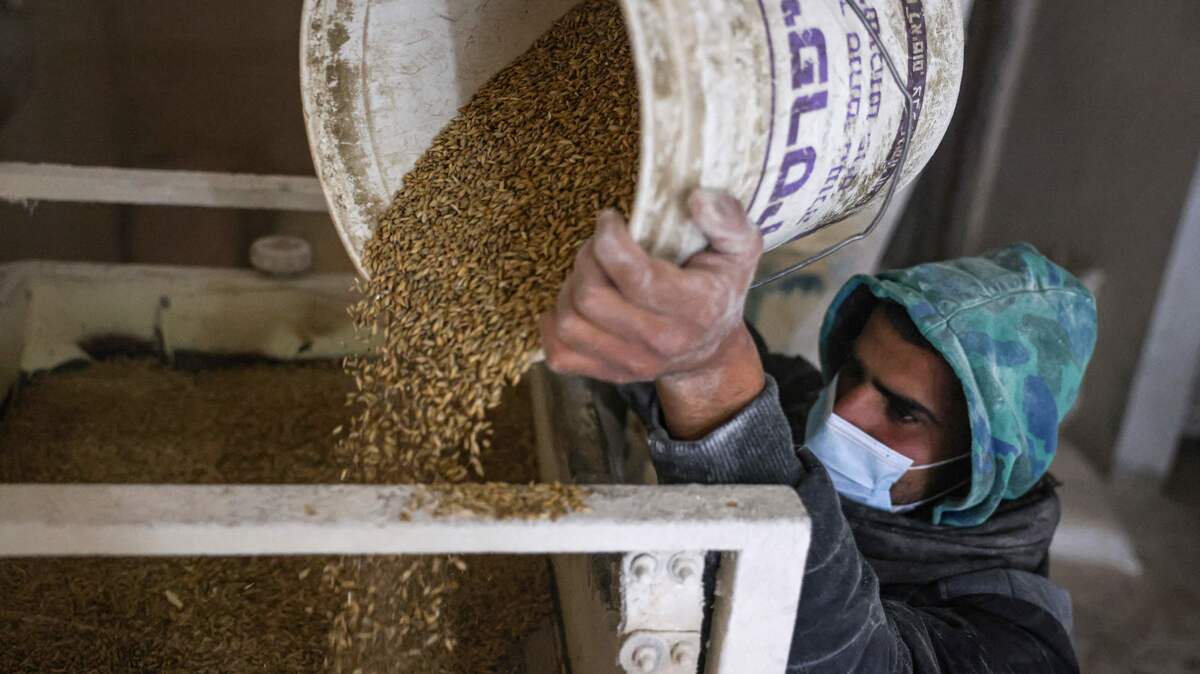
Palestinian labourer works in a wheat mill in Rafah, in the southern Gaza Strip, on March 21, 2022. - Russia's invasion of Ukraine could mean less bread on the table for many countries in the Arab world where millions already struggling to survive. (Photo by SAID KHATIB/AFP via Getty Images) SAID KHATIB/AFP via Getty Images hide caption

Palestinian labourer works in a wheat mill in Rafah, in the southern Gaza Strip, on March 21, 2022. - Russia's invasion of Ukraine could mean less bread on the table for many countries in the Arab world where millions already struggling to survive. (Photo by SAID KHATIB/AFP via Getty Images)
SAID KHATIB/AFP via Getty ImagesThe pains of every war ripple out beyond the borders of the conflict zone. And as the war between Russia and Ukraine drags on, the disruptions in the global food supply chain are beginning to deepen the already dire hunger crisis around the world.
Ukraine and Russia have an outsized role in global food production: combined, they are responsible for about 30% of the wheat in the world, about two-thirds of sunflower seed oil, large amounts of barley and corn, and more.
Now, because of the ongoing war, the price of food worldwide is skyrocketing and 38 countries are facing acute food insecurity, meaning they are just one step from famine.
NPR global health and development correspondent Nurith Aizenman reports on how the war is driving up prices.
David Beasley, executive director of the UN World Food Programme, talks about how food insecurity looks inside of Ukraine, and what is to come for the rest of the world.
Email us at
This episode was produced by Jonaki Mehta, Ayen Bior, and Karen Zamora. It was edited by Ashley Brown, Kathryn Fox, and Rebecca Davis. Additional reporting by Nurith Aizenman. Our executive producer is Cara Tallo.

 Live Radio
Live Radio